As U.S. lawmakers debate how much taxpayer support to throw at electric vehicles in their next tax bill, electric vehicles of all brands are selling out before they hit dealer lots. The most recent example of this long-running trend is the upcoming 2023 Cadillac Lyriq electric vehicle. This new luxury wagon/crossover was posted for pre-orders, or registration, or whatever you want to call it when a person orders an imaginary new EV and gives a company money to pretend to hold the spot for them.
Reports differ on the exact number of minutes it took for the first edition trim of the imaginary new EV to sell out, but by all accounts, it was under 20 minutes. Here are some headlines:
- Elektrek - “Cadillac Lyriq sells out in 19 minutes – automakers still underestimate EV demand”
- Inside EVs - “2023 Cadillac Lyriq Debut Edition Sold Out In Just Over Ten Minutes”
- KBB - “2023 Cadillac Lyriq EV First Edition Sells Out in Just Over 10 Minutes”
- GM Authority - “2023 Cadillac Lyriq Debut Edition Sells Out In Minutes”
By multiple accounts, or many publications re-reporting slightly differently the same initial report, the new EV from GM sold out about as fast as the online pre-order, reservation, or paid wish list system could accept EV shoppers’ money.
To help clarify the situation, GM issues this press release from Rory Harvey, vice president, Global Cadillac:
"Today, reservations for the 2023 Cadillac LYRIQ Debut Edition sold out in just over ten minutes and we continue to see a lot of enthusiasm around the brand – both current product and in our all-electric future. The initial response for LYRIQ has been extraordinary. Since the show car unveiling last year, more than 200,000 people have expressed interest in learning more about the vehicle and our electric future. The opening of reservations for the 2023 Cadillac LYRIQ Debut Edition represents just the beginning of Cadillac’s journey to become an industry-leading, all-electric luxury brand. While 2023 Cadillac LYRIQ Debut Edition reservations are full, more vehicles will be available to order through the Cadillac dealer network starting summer 2022. I can’t wait to share even more about our future EV lineup next year.”
This immediate sell-out of a future EV no consumer has ever tested is not unusual in any way. Tesla generally boasts about the number of vehicles it sells before it actually builds them. Neither Tesla nor GM shoppers receive any federal tax incentives to help reduce the cost of the EVs they purchase, or reserve, or whatever you prefer to call it. So why would more such corporate welfare be needed?
One answer would be that the world needs a low-cost EV available to the masses. That answer would seem valid, except that the Chevy Bolt was costing consumers - without federal tax incentives - under $20K new earlier this year. That was before the Bolts started to burn up in driveways and were pulled from the market. Recent reports say they are coming back.
We could post more links (like this one about a future Tesla) highlighting EVs that do not receive consumer-facing price supports "selling" by the hundreds of thousands before they are even built. But we assume the reader gets the point. Feel free to make your case in the comments section below on why products that sell out years before they are even produced need price subsidies.
John Goreham is a long-time New England Motor Press Association member and recovering engineer. John's interest in EVs goes back to 1990 when he designed the thermal control system for an EV battery as part of an academic team. After earning his mechanical engineering degree, John completed a marketing program at Northeastern University and worked with automotive component manufacturers, in the semiconductor industry, and in biotech. In addition to Torque News, John's work has appeared in print in dozens of American news outlets and he provides reviews to many vehicle shopping sites. You can follow John on TikTok @ToknCars, on Twitter, and view his credentials at Linkedin
Set as google preferred source


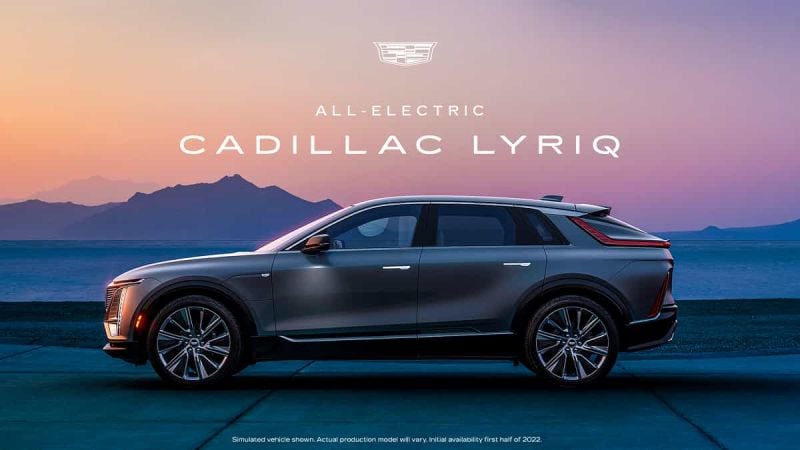




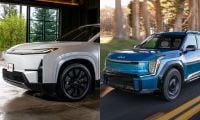
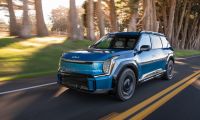
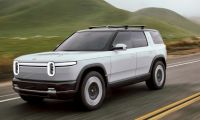

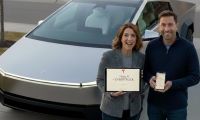
Comments
We really need federal and
Permalink
We really need federal and state incentives to promote EVs because they still make up less than 5% of new vehicle sales nationwide. I think that the subsidies are even more important for new car leases, to get prices down to the level where a first time car buyer can get behind the wheel of an EV. New tax subsidies will likely have a cap limit of $40K for new EVs, so it's far from supporting rich people with our tax dollars. Always new models will sell quickly at a higher price. I like the Lyriq. And especially because it will start out around $60K No doubt these first models will cost much more, being the first ones available. i do however think that it's shady that GM doesn't say how many Lyriq EVs are in this first batch of sold out models. GM also did this with their GMC Hummer EV, that was also sold out early. but they could be sold out at 1000 EVs, or 50,000 EVs, we don't know. Regardless, having strong interest and sales of the Lyriq is good news!
We need incentives capped by
Permalink
We need incentives capped by income so “the masses” can hop on the EV bandwagon instead of just those that can afford a car the price of a house in some parts of the country. Maybe incentive amount can even be driven entirely by income.
We don’t need.
Permalink
We don’t need.
Every EV produced is sold. The production capacity is increased as fast as possible. The cost of EV’s are dropping and will be on price parity with the ICE cars.
The incentives are just a wast of tax money. But as a shareholder of Tesla the free money is welcome. But it doesn’t make sense like a lot of other decisions of the Biden administration.
"But it doesn’t make sense
Permalink
"But it doesn’t make sense like a lot of other decisions of the Biden administration."
1. It's not just the US. As you can learn with Google, the governments of almost all the major countries north of the equator offer rebates on EVs. The main exceptions are the continents of Africa and South America, which have relatively few governments doing so.
2. It's not Biden, it's Bush 2, aka W, who signed the Energy Improvement and Extension Act of 2008 that got these EV rebates rolling.
3. It's not presidents, it's Congress that makes up these laws. The only decision the president gets to make on these laws is whether or not to send the bill back to Congress as needing fixing, aka vetoing. Apparently Bush 2 saw no need to fix that particular Act.
With equal logic you could have blamed Trump for the same thing during his administration. Which would have greatly upset Trump supporters, not to mention being unfair to Trump since he never had the opportunity to veto that 2008 Act of Congress.
(Disclaimer: I was born and educated in Australia and rooted for former US VP Nixon in the 1960 election but quickly adjusted to JFK after seeing Nixon's five-o'clock shadow. We were never told anything in school about Americans loving to hate their elected leaders, something I only learned about after moving here.)
“W” also signed the Million
Permalink
In reply to "But it doesn’t make sense by Vaughan Pratt (not verified)
“W” also signed the Million Solar Homes initiative, but it was structured so unless you had a ton of money to sink into your project (about the same amount as your house costs) you couldn’t take advantage of it—I tried. So incentives for alternative energy products have been around for quite a while but basically just to make larger companies revenues stable if they chose to implement those high-cost products of the day. It’s crazy how much better and lower cost the products are today (sorry for the solar diversion). The same correlation can be made with the GM EV1; the motor and battery technologies are vastly improved, and of course all the vehicles are selling out. To other respondents, the point of the incentives is to allow more people to compete with the ones with such deep pockets and get EVs in everyone’s hands that wants them, not just those that can afford them.